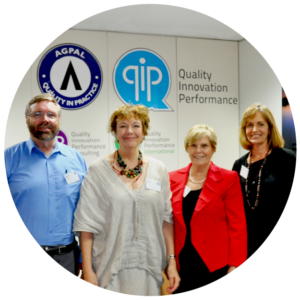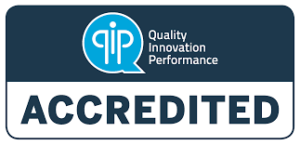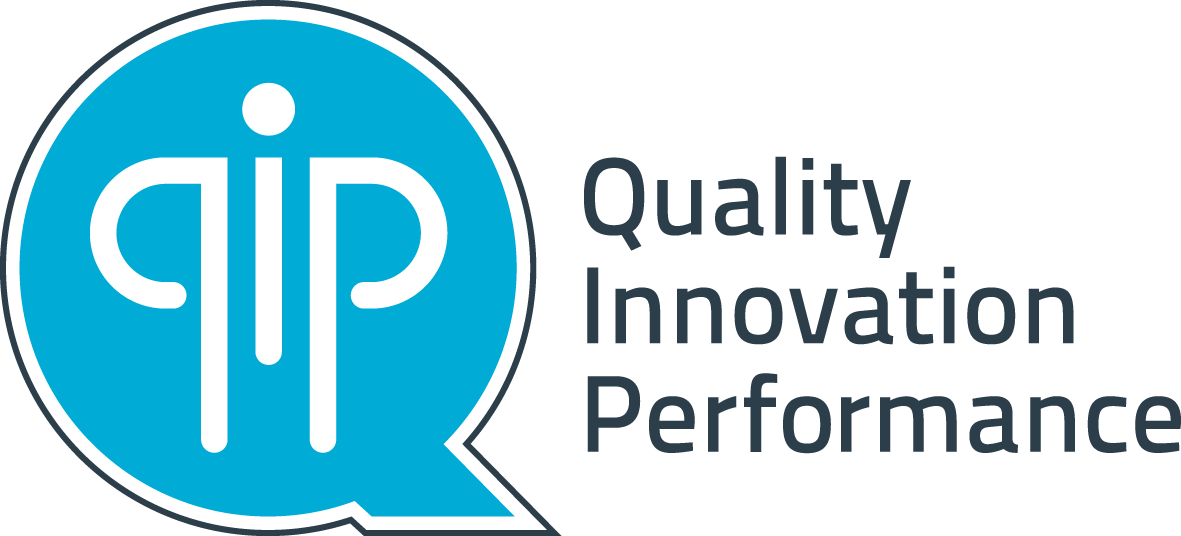Peak Bodies, ACCHOs and PHNs
Australian health and community peak bodies, including Aboriginal Community Controlled Health Organisations (ACCHOs) and Primary Health Networks (PHNs), play an important role in supporting their local service providers to deliver high-quality care and support to members of their community.
QIP understands that each peak body is different, with its own objectives, challenges and goals. To enhance the systems, processes, support and services delivered by these peak bodies, QIP has a range of accreditation and training offerings to meet the varied quality needs of these organisations.
QIP is committed to working with peak bodies to coordinate and streamline varied accreditation programs and fee-for-service training solutions, across multiple locations and platforms to increase efficiencies and knowledge, which in turn support improved consumer outcomes.
Accreditation for peak bodies
Just like the service providers they support, participating in the process of accreditation allows peak bodies to demonstrate a commitment to continuous quality improvement while engaging in activities which enhance systems and processes, culture, and service delivery to better meet the needs of Australian consumers.
Accreditation for peak bodies, ACCHOs and PHNs can be undertaken as a single accreditation solution or paired with more tailored accreditation frameworks to meet specific service delivery needs.
The QIC Health and Community Services Standards support peak bodies to take a ‘whole-of-organisation’ approach to quality committing to a cycle of continuous quality improvement. Whereas Rainbow Tick is a voluntary accreditation program that aims to address the inequities for LGBTI people by assisting health and human services to understand and respond to the needs of their LGBTI consumers. An additional option is the Australian Service Excellence Standards (ASES).
Fee-for-service training packages
Continuous quality improvement with the goal of becoming a high performing organisation involves ongoing learning for both management and staff. At QIP we provide a range of complimentary education and training opportunities to support teams during their accreditation journey. In addition to these, we offer fee-for-service education and training opportunities that are more comprehensive and tailored to the client’s needs.
Our Education & Training team works with peak bodies to develop tailored training packages, ensuring they are fit-for-purpose and meet the learning objectives identified by each peak body.
Learn more about our customisable fee-for-service training packages
Benefits of accreditation
Consumer confidence
Reassures consumers and the local community of an organisation’s commitment to deliver quality-focused services and care.
Reduce business risk
Provides a platform for ongoing review, monitoring and improvement of health services’ systems, processes and culture; this enables risk management and mitigation.
Quality team
Educating and engaging teams in the process of quality improvement can build a culture of quality among staff.
Industry benchmark
Offers confidence to stakeholders of the service delivery provided and assists organisations to meet regulatory requirements for funding incentives.
Quality improvement
Reflects an organisation’s commitment to continuous quality improvements in systems, processes, policies, culture, risk management and staff management.
Enhanced services
Provides opportunities to identify areas for improvement and implement solutions to enhance patient care and service experiences.
How QIP supports organisations
Tailored support
QIP has trained QIP Client Liaison Teams on hand to answer any questions clients may have about their accreditation, certification or verification. With expert knowledge of each of the standards or frameworks, evidence requirements and the self-assessment process, QIP’s Client Liaison Teams provide clients with on-going advice throughout their cycle.

QIP’s accreditation hub
The QIP accreditation hub is an online platform tailored to each client’s individual accreditation timelines and framework requirements. It includes a personalised action plan, a resource library and a number of other features to support clients throughout their accreditation journey.
Access to AccreditationPro
QIP’s online self-assessment software, known as AccreditationPro, streamlines accreditation preparation by helping clients determine their organisation’s compliance with an applicable set of Standards.

Access to online resources and education
QIP’s online Education and Resource Library, provides clients with access to a range of practical, informative and customisable resources to support organisations in complying with the relevant industry Standards.
Regular news and e-newsletters
Stay up-to-date with industry and organisational news, helpful tips and your standards information with QIP communications including periodical e-newsletters advising of any changes to processes, systems, standards or evidence requirements are released.
Highly trained assessment teams
QIP’s Assessors are highly trained and qualified peer assessors who work across the Australian health, community and human services sectors. Our team will share their knowledge and support organisations through the accreditation assessment.

Celebrating the achievement of accreditation
Achieving QIP accreditation takes dedication, team work and a commitment to continuous quality improvement. When organisations achieve their accredited, certificated or verified status, they are provided with their own 'Promotional Toolkit' filled with a number of materials to celebrate and promote this achievement.
The QIP Accredited Symbol is one way consumers and local community can be reassured that an organisation has been recognised for their commitment to delivering a safe and quality-focused service.


